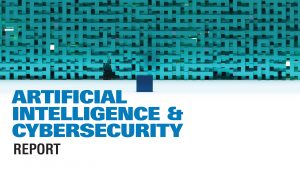Selected federal regulatory actions taken or proposed by several federal agencies, including the Environmental Protection Agency:
Bay Area’s Office Market Recovery
Partner Rachel Horsch recently moderated Bisnow’s panel, “Recovery of the Bay Area’s Office Market“. Topics covered how office spaces are evolving to accommodate for changing workforce needs, such as changing layouts, offices in residential buildings and hybrid work. Panelists discussed these topics, showcasing their most innovative projects and shed light on the future of the market in the Bay Area. Click here to view the recording.
needs, such as changing layouts, offices in residential buildings and hybrid work. Panelists discussed these topics, showcasing their most innovative projects and shed light on the future of the market in the Bay Area. Click here to view the recording.
How to Improve Cities After COVID-19: What to Know About the Revitalizing Downtowns Act
In July, several U.S. Senators introduced the Revitalizing Downtowns Act to Congress. In our previous post, we discuss how the bill is modeled after the federal historic rehabilitation tax credit, would provide a federal tax credit equal to 20 percent of “qualified conversion expenditures” with respect to a “qualified converted building.
As the pandemic continues, many office buildings may remain vacant and unused, leaving downtowns with fewer opportunities for investment and revenue generation. One potential impact of the bill would be the increased investment in affordable housing. With many cities large and small struggling to provide enough affordable housing, the act would create an opportunity to develop vacant buildings into much needed affordable housing developments.
In addition to creating jobs, the creation of affordable housing has the potential to slow down the gentrification affecting many large cities, said former U.S. Congressman Lacy Clay, now a Senior Policy Advisor at Pillsbury.
Read more here.
Environmental Attorney Anthony Cavender’s Exclusive Q&A with AmLaw’s Texas Lawyer
Anthony Cavender, a Houston-based Environmental & Natural Resources senior counsel was featured in an exclusive Q&A with AmLaw’s Texas Lawyer. Cavender is one of Pillsbury’s longstanding environmental lawyers, having joined the firm in 2003. Over the years, he quietly became one of the leading authorities on environmental decisions throughout the nation. Since the start of the COVID-19 pandemic, for instance, he penned 33 blog posts for Pillsbury’s Gravel2Gavel blog under the heading, “A Court-Side Seat.” A round up of last year’s year-in-review, which features excerpts of Tony’s blog posts can be found here. Cavender shares his views on how the environmental practice has evolved over the decades, what the long-term trends for the practice are, how he became a blogger, how he determines which decisions warrant a review, and what direction he thinks the respective agencies and courts will take under the new administration.
Read his full feature here.
Rohit Chopra confirmed as CFPB Director
On September 30, 2021, the United States Senate confirmed Rohit Chopra as Director of the Consumer Financial Protection Bureau (CFPB). Mr. Chopra helped establish the CFPB following its creation through the Dodd-Frank Act and served as an Assistant Director at the CFPB from 2010 to 2015. Director Chopra will likely continue the CFPB’s focus on institutions’ responses to the COVID-19 pandemic, with a particular focus on the housing, small business lending, and mortgages among other things. Pillsbury colleagues Brian H. Montgomery, Craig J. Saperstein, Deborah S. Thoren-Peden, JiJi Park, The Honorable William Lacy Clay Jr., Yvette Puckett Cravins, and Daniel C. Wood explain additional insights in Senate Confirms Rohit Chopra as CFPB Director.
Real Estate & Construction News Round-Up (10/06/21)
Real estate tokenization and smart home technology continue to grow, negotiations surrounding the bipartisan infrastructure bill stall its passing, artificial intelligence is poised to transform the construction industry, and more.
Real Estate & Construction News Round-Up (9/24/21)
A first for commercial real estate occurs, proptech sees a significant increase in venture capital funding, the Victorian government shuts down all construction sites after protests turn violent, and more. Continue Reading ›
Smart Construction and the Future of the Construction Industry
 “Smart Construction” is a loose term but generally refers to the development and use of processes and applications that improve construction planning and the management of projects (thereby potentially streamlining costs of construction).
“Smart Construction” is a loose term but generally refers to the development and use of processes and applications that improve construction planning and the management of projects (thereby potentially streamlining costs of construction).
The increased deployment of collaboration tools (e.g., Zoom, Microsoft Teams, WebEx) and other cloud-based technology solutions during the COVID-19 pandemic will invariably result in more efficient project management in construction going forward. These type of efficiencies are sorely needed, especially as the industry is trying to recover from supply chain issues, lockdown challenges and social distancing requirements resulting from the pandemic.
Connection Corner: Kevin Yaich of Shikun & Binui USA Energy
The Real Estate and Construction industry may be huge, but ultimately, as with all industries, it comes down to the people who help make it all come together. From time to time, we like to profile some of those people.
 Born and raised in Paris, Kevin Yaich set his eyes on a career abroad while in business school. After internships in Russia and Singapore, Yaich worked as a financial analyst for AIG and JPMorgan Chase. His exposure to the world of renewables came soon after when he spent almost eight years working for NextEra Energy Resources before assuming his current role as president of Shikun & Binui USA Energy. S&B is a global infrastructure group with its global HQ in Israel. Shikun & Binui USA Energy (S&B USA Energy) was launched as a growth-oriented investment platform in March 2020. They are focused on owning and operating solar, wind, and battery storage projects under long-term contracts with creditworthy counterparties.
Born and raised in Paris, Kevin Yaich set his eyes on a career abroad while in business school. After internships in Russia and Singapore, Yaich worked as a financial analyst for AIG and JPMorgan Chase. His exposure to the world of renewables came soon after when he spent almost eight years working for NextEra Energy Resources before assuming his current role as president of Shikun & Binui USA Energy. S&B is a global infrastructure group with its global HQ in Israel. Shikun & Binui USA Energy (S&B USA Energy) was launched as a growth-oriented investment platform in March 2020. They are focused on owning and operating solar, wind, and battery storage projects under long-term contracts with creditworthy counterparties.
Beyond Security: Balancing Innovation, Execution and Risk
 The common connotation of AI related to cybersecurity relates to technology infrastructure; however, such systems underpin a wide variety of applications to enhance cyber defenses more generally. Physical security, for example, is important as potential intruders can use in-person ways to gain access to corporate networks. This is particularly important to some sectors—such as real estate—in light of the rise of smart cities that rely on technologies such as facial recognition and various sensors.
The common connotation of AI related to cybersecurity relates to technology infrastructure; however, such systems underpin a wide variety of applications to enhance cyber defenses more generally. Physical security, for example, is important as potential intruders can use in-person ways to gain access to corporate networks. This is particularly important to some sectors—such as real estate—in light of the rise of smart cities that rely on technologies such as facial recognition and various sensors.
Pillsbury has published a new research report that seeks to illuminate the important role artificial intelligence stands to play in defending against cyberattacks and data leaks. Titled “Artificial Intelligence & Cybersecurity: Balancing Innovation, Execution and Risk” and written by The Economist Intelligence Unit (EIU), the 22-page report uses extensive research and expert interviews to examine how AI can help strengthen cybersecurity, how the growing need for data to train AI systems is intensifying concerns around privacy, and how companies can anticipate risk.




